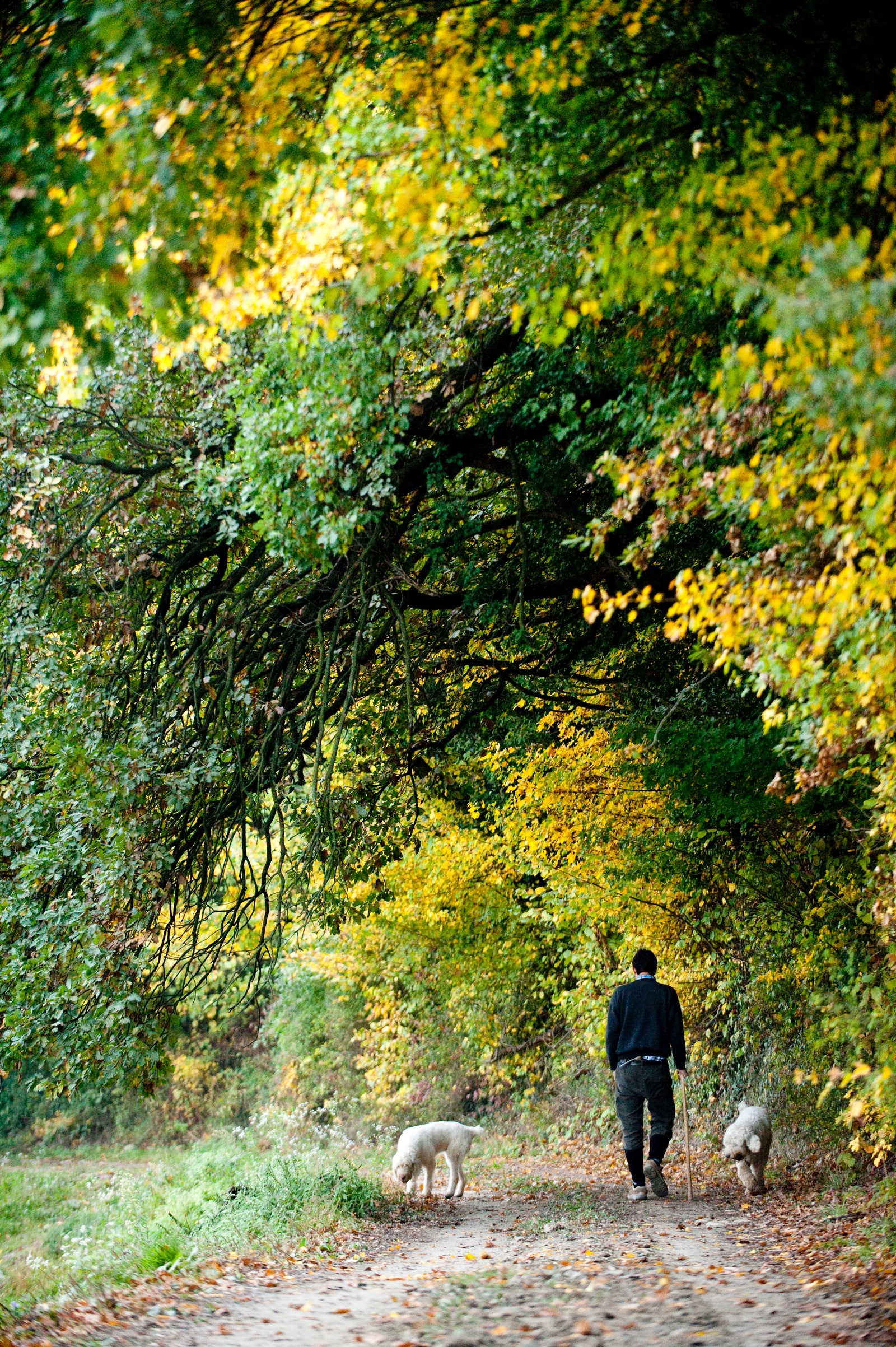Savoring Slow Food and Slow Travel in Italy
3 min readI recently came across a salad so exceptional that it made me hopeful for the future. The lettuces responsible for this flutter of optimism weren’t your typical green insalate: They were a rainbow-hued selection of biodynamically grown flowers, herbs, and leaves handpicked from the gardens of the three-Michelin-starred restaurant Piazza Duomo in Alba, a quiet medieval town in Northern Italy.
The salad, all bright emeralds and red-veined shoots and yellow blossoms, arrived at the table like an edible Matisse painting: super tweezery and technically precise in its fancy, almost extraterrestrial plating, yet made from the simplest, most rustic ingredients. With almost no dressing to enhance (or mask) its true flavors, every bite came together in sweet-tart vegetal harmony. The secret to the dish, chef Enrico Crippa explained, is that the produce is harvested fresh each morning. “They’re organic and local, yes, but they’re also unrefrigerated and haven’t been transported by truck,” he noted. “Many guests have told me that our greens remind them of their childhood or their grandparents. At the same time, the food we prepare here is futuristic. That double vision is the essence of Northern Italy.”
I came here, to Piedmont and the Aosta Valley, in early 2020 to see what that backward-forward approach looks like today. Italy is the birthplace of Slow Food International—an organization that started in 1989 to counteract the fast-food-ification of the world by celebrating local culinary traditions. Its manifesto is a defense of pleasure: “Homo sapiens must regain wisdom and liberate itself from the ‘velocity’ that is propelling it on the road to extinction. Let us defend ourselves against the universal madness of ‘the fast life’ with tranquil material pleasure.” Long before the zero-waste movement, Slow Food showed us that taking it easy and being mindful of our senses isn’t just sensible—it can help combat climate change.
Slow Food has spawned other cultural movements—including slow travel, a similarly minded ethos that honors a place’s most authentic attributes and fosters genuine connections with local people. In a post-pandemic world, this kind of immersive travel could become more relevant than ever as travelers reassess their reasons for taking trips. In the three decades since its founding, Slow Food has helped Europeans rediscover something crucial: Keeping the past alive isn’t simply an exercise in nostalgia—it’s a way to protect the planet and usher in a more sustainable future.
It didn’t take me long after arriving in Alba to realize how everything that sprouts from the soil of the surrounding hills tastes transcendent, from the famous white truffles (which, in autumn, are available to purchase—and, more importantly, sniff—at the local market) to the regal red wines of Barolo, with their notes of roses and loamy soil. Even the hazelnuts that grow around here are transportive, as I discovered when I ate a few—roasted, with nothing else added—at the Altalanga Azienda Agricola shop in the center of town. How amazing to see that something as simple and healthy as a hazelnut, grown in the right conditions, can taste so otherworldly.
As any Italophile knows, a fascinating expression of the Slow Food philosophy can be found at the Eataly chain, which began in Piedmont and now has 37 locations around the world. The original Eataly outlet was opened in Turin by the Farinetti family in 2007. By following a basic motto inspired by Slow Food—“good, clean, and fair”—the company scaled artisanal Italian-made fare into a superstore setting. It believes that each of us can do our part to make the world a cleaner place by spending on ethically sourced products. Now the Farinettis hope to replicate Eataly’s global success by launching a bio-sustainability emporium called Green Pea. The first location opened on December 8, directly beside Eataly in Turin, with additional outlets slated for London, Dubai, Paris, and Los Angeles.




